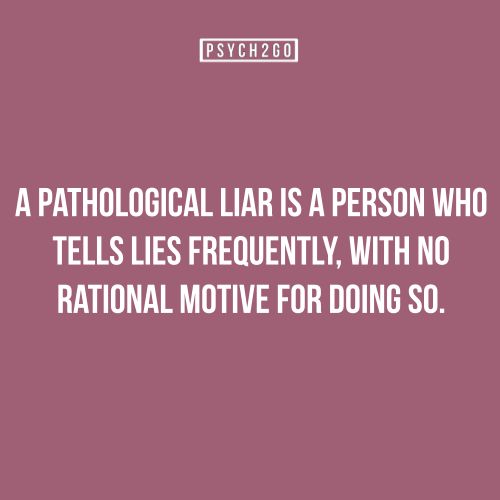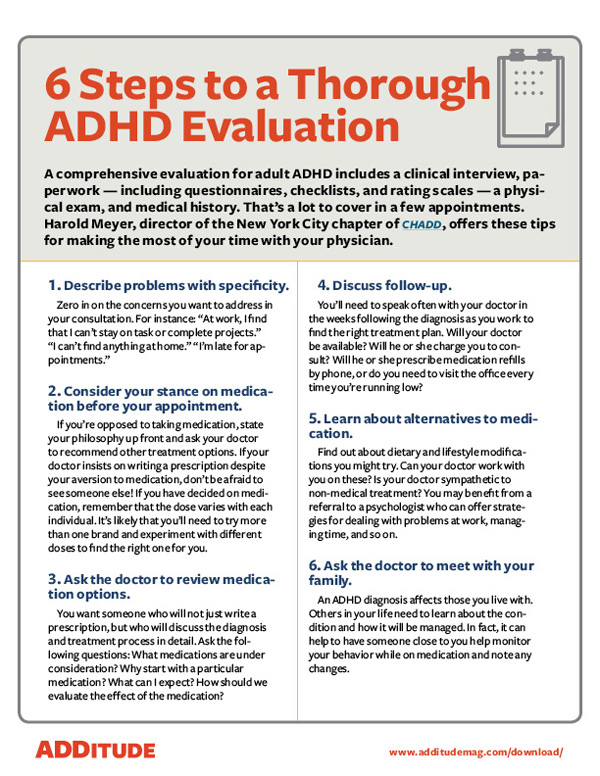Compulsive liar child
How To Deal If Your Child Is A Compulsive Liar?
IntroductionA compulsive liar is a person who continually tells lies. When confronted, the liar justifies their behaviour by sticking to their story or giving far-fetched explanations for their lies. This pattern of lies often begins in childhood and continues into adulthood. This article discusses identifying if your child is a compulsive liar and ways to deal with it.
What makes your child a compulsive liar?There are several reasons why children may begin telling lies compulsively:
- If your child has been the victim of bullying, they may continue to lie to try and fit in with others or avoid getting bullied again.
- If you feel that your child is struggling with another problem, such as attention deficit hyperactivity disorder (ADHD) or brain disorder, this can increase their chances of lying regularly. You may want to meet with the child’s doctor to rule out any possibility.
- In some other cases, the lies may be a way for your child to get attention from others. If they believe that no one truly cares about them or pays attention to their needs, they may exaggerate stories to get noticed by someone else.
- You can work with your child’s teachers and school counsellors to identify any underlying issues that may cause your child to lie constantly.
If your child has a habit of compulsive lying, they may think that there is nothing seriously wrong with it and there are no consequences for their actions. You need to explain why lying is wrong. The following tips may help reduce this type of behaviour:
- Practice positive reinforcement techniques. For example, you may reward your child with a sticker when he didn’t lie even a single time for an entire day. It is likely to encourage your child to continue telling the truth.
- If lying continues, stop all privileges not necessary for daily life or safety until they have earned them back by being truthful.

- Make your child write down what they did and how it made you feel when they lied.
- You must communicate with your child regularly to catch any signs of lying.
- If your child continues to lie, you may need to meet with your child’s teacher and school administrators. Your child needs to understand that their actions have consequences and can upset others around them.
- You may also wish to consider professional counselling to deal with the lying.
Your child may be under the impression that their lying does not cause any harm to others. You need to make them realise that their lies can harm others.
If your child’s behaviour is causing others to be hurt, you may need to take action. This type of lying is known as destructive/antisocial lying, and it may be more likely if your child has a history of aggression or other behaviours that can harm those around them.
If you believe that your child has hurt another person due to their lies, and you show them examples of this, it will make them realise the consequences of their behaviour. Parents and teachers need to show children the harm that can result from lying regularly. You will also want to teach your child that it is unacceptable to hurt another individual due to their lies and reinforce this idea when they get caught in a lie.
Parents and teachers need to show children the harm that can result from lying regularly. You will also want to teach your child that it is unacceptable to hurt another individual due to their lies and reinforce this idea when they get caught in a lie.
The following are some common signs of a possible compulsive liar:
- Your child has an extensive history of telling lies with no apparent motivation to do so.
- Your child lies about actions anyone can easily verify, such as a broken item or lost homework.
- Your child seems to enjoy lying and does not feel guilty about it. They may seem proud of their ability to lie, which is a sign that they continue with this behaviour because it makes them happy.
- A compulsive liar is someone who will lie about the same issue again even after getting caught lying about it.
- Your child enjoys telling stories that are not plausible, such as ones in which they are unique or have superpowers.
 These stories tend to change frequently and get more elaborate with each telling.
These stories tend to change frequently and get more elaborate with each telling.
If you notice that your child is lying, it is essential to address the behaviour immediately. There are a few steps you can take to help them break this habit:
- Your child may be lying; as for him, it seems to be the only way to get out of trouble or avoid negative consequences. It may be easier for your child to lie than accept responsibility for their actions. You need to assure them that you will be upset if they lie and not when they do something wrong and get it.
- Set clear rules and examples within your home that show that no one is allowed to lie under any circumstances. The best way to encourage your child to be truthful is by rewarding them when they tell the truth.
- You can help your child by identifying why they continue to lie and what makes them want to lie in the first place and then telling them the correct way to approach that situation.

If you find that your child is frequently lying and cannot seem to stop, you must take remedial steps immediately. You need to tell them that no one will ever trust them with this kind of behaviour. This type of compulsive lying can interfere with their relationships. Try to address this issue yourself first, then with the teachers, and in some cases, your child may require psychological counselling or treatment from a therapist to get through this stage of their lives.
Compulsive Lying In Kids, Explained & Tips To Work Through It
By Leena Nas
There's a difference between a "white lie" and an issue. If you find your child compulsively lying, here's what that means and how you work through it
Via Shutterstock and illustrated by Adam Jeffers for MomsWe all tell little white lies from time to time, and most of us can admit to embellishing the truth a wee bit from time to time, too. Of course, children lie and tell little fibs as well, and and that's completely normal. The issue lies in children that become compulsory or pathological liars, which is very different than telling a little white tale. Children who consistently and regularly fabricate extensive lies don't become this way for no reason. This behavior is generally rooted within insecurity, fear, or trauma, and in some cases, it may be the sign of a child that is trying to conceal inadequacies they face which are resulting from a developmental disability. For the most part, Good Therapy identifies that lying is developmentally normal for children of all ages, but if parents feel the are lying excessively, and way more than their peers are, or that their lying is being paired with other behavioral issues, it may be a sign of deeper issues at play.
Of course, children lie and tell little fibs as well, and and that's completely normal. The issue lies in children that become compulsory or pathological liars, which is very different than telling a little white tale. Children who consistently and regularly fabricate extensive lies don't become this way for no reason. This behavior is generally rooted within insecurity, fear, or trauma, and in some cases, it may be the sign of a child that is trying to conceal inadequacies they face which are resulting from a developmental disability. For the most part, Good Therapy identifies that lying is developmentally normal for children of all ages, but if parents feel the are lying excessively, and way more than their peers are, or that their lying is being paired with other behavioral issues, it may be a sign of deeper issues at play.
When your child is exhibiting signs of lying that are not the normal, run-of-the mill white lies we'd expect to see from every child, it may be time to assess what may be happening in their lives, and identify some ways that you can help.
Fear And Trauma
Credit: CrelloIf a youngster has been exposed to a traumatic incident, they are more likely to bury these scary and troubling thoughts, and find ways to skirt around directly answering questions pertaining to this topic. A small child's natural reaction to severe trauma and authentic fear may very well be to protect that trauma and those memories from resurfacing. In such situations, any question that is asked about this topic is buried deeply in their subconscious and may be unearthed as a web of lies, instead of a true story.
The child may continue to fabricate irrelevant and unrelated tales and habitually craft and create their own stories that have very little or no factual grounding whatsoever. A child that compulsively lies may be doing so as a fear and protection method and may need some help from mom or a mental health professional to unravel the triggers and reveal the source of trauma.
In some cases, Pysch Central reports that a child's compulsive lying may even be a telltale sign that there is violence within the home. Their experts suggest that; "When the adults in a kid’s life are dangerous (violent, irrational, or over punishing), kids get so worried about the consequences to fessing up to a misdemeanor they try to avoid it altogether," and the lies begin. Sometimes when they begin, the child can't figure out how to stop. This type of lying is a reaction to fear, and needs to be addressed.
Their experts suggest that; "When the adults in a kid’s life are dangerous (violent, irrational, or over punishing), kids get so worried about the consequences to fessing up to a misdemeanor they try to avoid it altogether," and the lies begin. Sometimes when they begin, the child can't figure out how to stop. This type of lying is a reaction to fear, and needs to be addressed.
RELATED: 10 White Lies Other Parents Tell That Make You Feel Relieved
Developmental Delays
Credit: iStockThere hare been studies that demonstrate that children with severe ADD and ADHD are known to compulsively lie as an act of self defense. This is a method they implement to essentially hide the fact that they are struggling to process certain information. Often times, their lying is a form of distraction, as they try to take the focus off what the feel are their 'inadequacies.'
The experts at Understood explain this by indicating that, "Kids with ADHD might lie not to get out of doing a task, but to hide that they’re struggling with the task. It’s a way of coping with challenges. And they may not even realize they’re doing it." The lies continue and as they do, they grow. Lies become elaborate and once a child starts, it's tough for them to stop.
It’s a way of coping with challenges. And they may not even realize they’re doing it." The lies continue and as they do, they grow. Lies become elaborate and once a child starts, it's tough for them to stop.
There could also be underlying personality issues and mood disorders that may be at play when a child is uncontrollably lying. A child that is trying to conceal moods they feel are abnormal or are trying to bury rage and other anger-based moods, they may begin by lying as a way of avoidance. This is common among children that are struggling with bi-polar and antisocial personality disorder.
How To Help
Via: talkspaceBefore you start to worry, it's important to understand just why your child is lying and to grasp whether or not there is an actual problem that needs to be addressed. Sometimes, parents will uncover that their child is just suffering from a case of insecurity or is struggling to stay in the good graces of their friends. In order to do so, and to fit in, they may be fabricating stories that quickly lead to other stories, and so the story goes. Parents can help their child work through this.
Parents can help their child work through this.
To understand whether or not your child may be demonstrating signals of troublesome, compulsory lying, Good Therapy suggests parents identify whether or not the type of lying being presented is age-appropriate. They also indicate that speaking to your child in a gentle, non accusatory and non-threatening way may be all the encouragement they need to express to you why they are lying and tell you what's really going on.
A therapist is also a wonderful resource and will be able to help parents and children get to the root of the problem, while simultaneously implementing solutions as well.
READ NEXT: How To Tell When Your Teen Is Lying To You
Sources: Good Therapy, Understood, Pysch Central
Pathological liars: what makes them lie?
146,002
Man among menKnow thyselfPractices how to
- Photo
- Shutterstock/Fotodom.ru
Will you swear that you will always tell the truth, the whole truth and nothing but the truth? Hardly, like 99.99% of the people in the world. Anyone who claims that he has never lied is clearly disingenuous. However, most can honestly say that they are at least trying not to cheat.
But there is a special category of people for whom lying is a way of life. It is easier for pathological and compulsive liars to make up three boxes than to tell the truth. Why do they do it and how to crack them? nine0003
Pseudology fantasy
Pathological lie, mythomania or Pseudologia Fantastica, causes a lot of controversy among psychologists and psychiatrists. Some believe that this is only a symptom of a more complex disorder (for example, borderline personality disorder, sociopathy or narcissism), others are convinced that this is a deviation in itself.
It has been suggested that this is a special form of addiction: a person cheats under the influence of a psychological impulse, like an alcoholic, a smoker or a gambler, in response to specific triggers. However, the fact remains that some people lie all the time. nine0003
However, the fact remains that some people lie all the time. nine0003
Their deceit can be called chronic, since it is observed throughout life, or habitual in the sense that it becomes second nature
People of this type always act under the influence of internal motivation, and not external factors. In other words, they lie not so much to avoid the unpleasant consequences of the truth, but for the sake of "sport interest".
Pathological liars are not so easy to recognize, especially on a superficial acquaintance or at the beginning of a relationship. They may seem interesting, intelligent, sociable, charming. Their true face is revealed only with time, and then communication becomes strained. Lying endlessly can destroy friendships, loves, work relationships, and even families. nine0003
Pathological and compulsive lying: what is the difference?
Two types of lies have their own characteristics. How do you know who you are dealing with?
How do you know who you are dealing with?
Pathological liars:
-
Lie down with a specific purpose,
-
Invent fantastic stories that can endlessly complement with new details,
-
Believe everything that the outfits,
-
are indignant when they are suspected in deceit,
-
lie to strengthen their authority,
-
do not blush or feel embarrassed.
Compulsive liars:
-
seriously believe that they are obliged to lie: either because they do not know how to do otherwise, or if it is inconvenient to tell the truth,
-
often lie for no clear reason and without any benefit, 9003
-
make up fables on the go without really thinking about credibility,
-
prefer "holy" lies, which they think others would like to hear,
-
tend to feel someone else's distrust,
-
when they are caught, they confess that they are lying, but continue to fool others.

These differences are very conditional, because deceivers easily change masks.
- Photo
- Shutterstock/Fotodom.ru
What caused this behavior?
There is no clear scientific explanation for the tendency to communicate deliberately false information. This behavior is due to many genetic and environmental factors, but this set is unique for everyone. Here are the most common reasons. nine0003
1. Personality disorders
As mentioned above, lying at every turn can be a symptom of a mental disorder.
2. Features of the brain
A number of studies point to structural abnormalities in the brains of pathological liars. One such study revealed increased white matter volume in three regions of the prefrontal cortex.
Other authors believe that a persistent tendency to lie is formed as the restraining emotional reaction of the amygdala weakens. Earlier studies found that 40% of pathological liars had damage to the central nervous system caused by epilepsy, head trauma, or dangerous infections. nine0003
Earlier studies found that 40% of pathological liars had damage to the central nervous system caused by epilepsy, head trauma, or dangerous infections. nine0003
3. The costs of education
In childhood, we all learn what is good and what is bad. At an early age, a person may lie out of fear of punishment or for profit, and later this becomes an unconditional attitude.
4. Chemical addiction
Drug addicts and alcoholics often use cunning to hide their problem and at the same time swindle money: addictions “turn off” conscience.
5. Other psychological problems
A person who lies frequently may suffer from depression, anxiety, or obsessive-compulsive disorder. Such behavior may be associated with fear, guilt or shame, unwillingness to admit their condition. It is important to understand that not every person with such a diagnosis is a pathological deceiver! nine0003
- Photo
- Shutterstock/Fotodom.ru
Signs of pathological and compulsive lying
If you suspect that you are regularly fooled, pay attention to the characteristic signs of lying.
1. The stories of the liars are absolutely unbelievable
If you find yourself shaking your head often, refusing to believe the fables, it seems that you have come across just such a person. Someone tells how they dined with Tom Cruise or set a world record for eating sausages? You are not mistaken. nine0003
2. There is a desire to get attention
If someone lies to gain interest, and goes out of his way to prove his own worth, you are a pathological liar. They practice two ways to attract attention: Instead of admitting their mistake or honestly saying that they are in trouble, such people are talking nonsense, just to look sinless.
Make yourself a victim. nine0018 To enlist the sympathy and support of others, they complain about imaginary misfortunes. Illnesses, death of loved ones, someone's cruelty and other catastrophes in which they allegedly suffered.
Illnesses, death of loved ones, someone's cruelty and other catastrophes in which they allegedly suffered.
3. Liars have low self-esteem
By itself, it does not indicate pathological or compulsive lying, but in combination with other signs, it completes the portrait of a shameless deceiver. Usually low self-esteem is found in compulsive liars: it hides anxiety and insecurity. nine0003
4. They should have the last word
Arguing with a pathological liar is like banging your head against a wall. He will give the most ridiculous arguments until you get tired of arguing, just to get out of the fight as a winner. Compulsive liars are easier: they are embarrassed when they are exposed and do not insist on their own.
5. They are extremely resourceful
They manage to invent plausible versions for all occasions with lightning speed, create suitable lies literally out of thin air and present them in a convincing form. nine0003
6.
 They know how to turn everything upside down
They know how to turn everything upside down If liars feel that they are close to failure, they immediately back up and change the meaning of what was said. But it is useless to catch them at their word: they will object and say that you misheard or misunderstood.
7. Their life is chaotic and full of tragedies
They get out as best they can, trying to seem honest, but sooner or later people realize that something is wrong here. Relationships crumble, another job is lost, friends turn away, but the pathological liar is still rushing about in search of simpletons who can be hung noodles on their ears. nine0003
8. They do not know how to keep secrets and love to gossip
They are not familiar with the concept of decency: they enthusiastically discuss the details of someone else's life, including intimate ones. Nothing is sacred to them.
- Photo
- Shutterstock/Fotodom.ru
How to behave with them
It would seem that there is nowhere clearer - to stop communicating and delete from life. But it's not always easy, and it's not always necessary. Not all deceivers are notorious crooks. nine0003
If you are convinced that you have encountered a narcissist or a sociopath, then there is no question: stay away from him, and do not let your conscience torment you. But if someone close to you has serious psychological problems or addiction, you probably shouldn’t say goodbye to them. What to do?
1. To believe… if necessary
To look for a lie in every word is more expensive for yourself. Yes, a person often lies, but still able to be honest. He may be exaggerating, but he's basically telling the truth. At the very least, try to figure out when to trust him and when not. nine0003
Do you remember slippery topics, during the discussion of which you often caught your interlocutor in a lie? Or periods of exacerbation, when the propensity to lie became too obvious?
A healthy skepticism doesn't hurt, but if you're not completely sure that everything you've said is a complete lie, why not assume that you're being told the truth? Of course, this does not apply to important issues: here you need to check everything.
A modicum of trust is needed: when a person knows that he will be accused of deceit anyway, why should he be honest? Those who are trusted are more likely to reveal the truth, especially if the lie is associated with guilt or shame. nine0003
2. Understand why they lie
We feel bitter when we are deceived, and this is a natural emotional reaction. Critical thinking can help you deal with it. Think: why does a person lie? What drives them? What is the reason?
If you can figure out the motives, a little bit of sympathy will surely appear. Your emotions may not subside immediately, but sooner or later you will calm down and be able to take a sober look at the situation.
3. Accept it as a fact: lies will be repeated more than once
Pathological or compulsive liars do not always control their speech. Therefore, it is wiser to admit that they are like that and you have to live with it somehow. This does not mean forcing yourself to believe tall tales or accepting their behavior as the norm. The main thing is to realize that not every lie is said with malicious intent.
The main thing is to realize that not every lie is said with malicious intent.
They can't help but lie. At least not now, given certain circumstances. Of course, no one forbids fighting this, but you yourself will not change anything. Try to look at it philosophically and not take it to heart. nine0003
4. Convince them to ask for help
If the interlocutor has developed a tendency to lie relatively recently, you can guess what the matter is (depression, addiction in the initial stage, childhood psychotrauma) and the person is dear to you, try to persuade him to see a psychotherapist.
People who constantly lie are not easy. And yet, do not rush to write them down as scoundrels or malicious manipulators. There are many causes for pathological or compulsive lying, and although this habit harms both those who are lied to and those who lie, it is treatable. nine0003
Daniel Levitin "Guide to Lies"
This book will help you recognize lies and process any information critically. From it you will learn how to critically evaluate news, advertising, reports; it is easy to be persuasive by telling stories that subtly deviate from the facts - and how to recognize such stories; work with graphs and recognize data manipulation using visual means; determine who is behind the expertise, words, website, information. nine0003
From it you will learn how to critically evaluate news, advertising, reports; it is easy to be persuasive by telling stories that subtly deviate from the facts - and how to recognize such stories; work with graphs and recognize data manipulation using visual means; determine who is behind the expertise, words, website, information. nine0003
Advertising. www.mann-ivanov-ferber.ru
Text: Natalya Spiridonova Photo source: Shutterstock
New on the site
“Everything doesn't go well in life. Have I been jinxed?"
3 mistakes not to make in search of happiness
“Do you want to please others? Feel your worth”: a psychoanalyst's opinion
Why do we have animals instead of children
Test: Who are you at the New Year celebration?
“I become like my tough and distant father. What to do?" nine0003
Top 10 Psychologies Articles of 2022
Naked People and Art: How the Image of Nudity Has Changed from Age to Age
How to Recognize the Compulsive Liar and the Origins of Mythomania »wiki useful Bezzia
Lies are what we hate with all our might. Sometimes we don't know how much we are surrounded by them. B compulsive liar He is not easy to recognize, even if we think otherwise. Although today we will see some features that will help us to expose them. nine0003
Sometimes we don't know how much we are surrounded by them. B compulsive liar He is not easy to recognize, even if we think otherwise. Although today we will see some features that will help us to expose them. nine0003
El the mythomaniac or the compulsive liar usually enters into a kind of vicious circle. A circle in which lies become great heroes. Reality will no longer be the main thing in their lives, but fantasies are associated with this lie. Find out if you are surrounded by such people!
Index
- 1 What is mythomania
- 2 Origin of compulsive disorder lying down
- 3 Profile of a liar
What is mythomania
Psychological disorder is called mythomania. Those who suffer from this have to lie at every turn. But there is an end to this, because by lying, you will feel a number of benefits. A person will feel much better, they will be admired and even attract the attention of others. So if, when you lie, you see that everyone is on your side, the mess will run its course. We can say that 's real purpose of compulsive liars is to distort reality in order to get 's attention.
So if, when you lie, you see that everyone is on your side, the mess will run its course. We can say that 's real purpose of compulsive liars is to distort reality in order to get 's attention.
They want to captivate everyone who listens to them, but at the same time they will always be afraid of being discovered. Although in the meantime they will achieve what is an achievement for them. Admire and hear This is much more than they could think. But that's not always the case, because their trusted people know what's going on and leave them out.
Origin of compulsive disorder lying down
He said that this disorder can occur in both childhood and adolescence. . It is at this moment that you want to attract the attention of others. Also, being a trigger due to low self-confidence and various insecurities. Although it may occur spontaneously to avoid certain punishments, it will gradually intensify.
Perhaps because, as benefits are gained, such lies are quickly used to save them. So, getting used to them is achieved by repetition. Therefore, the more time passes, the worse it is to control. Sometimes yes that You try to stop lying, but you can't always . The circle is closed and it is already difficult to get out of it.
Liar profile
We need to know how to detect them in time, although this is not always possible. The truth is that many retain the same profile. You will never worry about the scope of a lie or what it might cause. Although he tries not to be discovered, there seems to be a time when he cares little for him, as he will continue to increase his stories. nine0017 The liar not only lies but believes their stories so you can't stop telling them anymore.
It is said that a compulsive liar will make more gestures when expressing himself. They often touch the face, thighs and clench their hands, squeezing them hard.














